Generic
Link Between Chronic Illness and Hearing Loss
By Team Hearzap | July 17, 2025
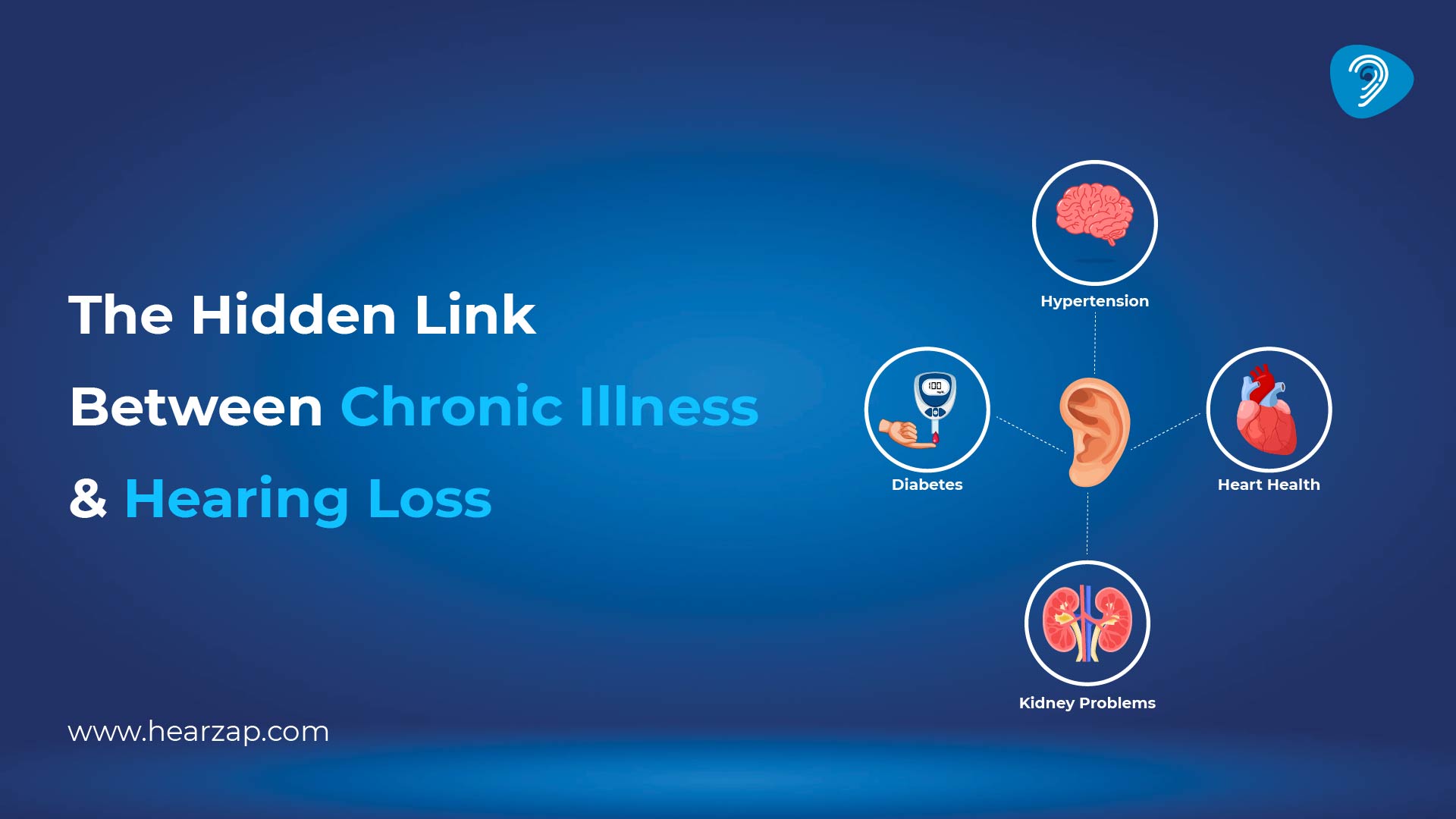
When we hear about hearing loss, we usually think of loud music, old age, or maybe too many years working around machines. Your hearing can take a hit because of what’s going on inside your body, not just outside.
That’s right. Some of the most common chronic illnesses quietly affect your hearing. And unless you know what to look out for, you might not even realise it’s happening.
So let’s talk about how your health and your hearing are connected. What can you do about it?
Connection Between Your Heart and Your Hearing
Your inner ear needs good blood flow to function properly. The tiniest parts inside your ear are working constantly, and they rely on oxygen from your blood. When your heart struggles from blocked arteries or irregular rhythms, your ears often feel it first.
This is where the hearing loss heart disease link comes in. If you have heart disease, your ears may not be getting enough of what they need. Over time, that could gradually lead to hearing problems.
What About High Blood Pressure?
Let’s talk about hypertension.It creeps in silently, and most people don’t even know they have it.
High blood pressure can slowly damage the tiny blood vessels in your ears. The damage doesn’t cause pain. It doesn’t scream for your attention. But it adds up. That’s why researchers now warn of the hypertension hearing loss. If you’re already managing high BP, don’t ignore small changes in your hearing. They may be connected.
Other Health Conditions That Mess with Your Hearing
There are several diseases that cause hearing loss, and you may not suspect them at all. But they can all affect how your ears function:
- Diabetes – High sugar levels can damage the nerves and blood vessels inside your ear.
- Kidney disease – Your kidneys and ears share similar structures and are often affected together.
- Autoimmune conditions – Lupus and similar illnesses can cause inflammation that affects the ear.
- Thyroid problems – Especially low thyroid, which may affect how you process sound.
So Why Does This Matter?
Because hearing loss doesn’t always start with noise. Sometimes, it starts with your body trying to keep up with illness.
You might be managing your sugar levels or taking pills for blood pressure. You may be focused on your heart, your lungs, or your kidneys. But your hearing is quietly getting affected, and if you don’t check it, you may miss the early signs.
What Can You Do?
Here’s the good news: there’s a lot you can do, and it doesn’t need to be complicated.
- Get your hearing checked if you have any chronic illness. Even if you think your hearing’s “fine.”
- Talk to your doctor about whether your medication could be affecting your ears.
- Take early signs seriously. Struggling to hear the TV, missing parts of a conversation, or ringing in your ears? Don’t brush it off.
- Manage your health. What helps your heart, sugar, and blood pressure will likely help your ears too.
If you’re already living with a chronic illness, don’t let hearing loss be the thing you ignore. Your ears may be quietly affected by what your body is going through. But if you catch it early, there’s a lot you can do.
You deserve to hear the world around you fully and without strain.
Also Read: Conductive Hearing Loss
FAQs
Is hearing loss a chronic condition?
Yes. In many cases, it builds up slowly and becomes long-term. You may not notice it overnight, but once it’s there, it needs lifelong care.
What are the 4 types of hearing loss?
You’ve got conductive (outer or middle ear issues), sensorineural (nerve damage), mixed (a bit of both), and auditory processing (when your brain struggles to make sense of sound).
How does hearing loss affect your everyday life?
It makes simple things hard, like talking with friends, hearing the doorbell, or enjoying music. Over time, it can leave you feeling left out or exhausted from always trying to catch up.
What is the best treatment for hearing loss?
There’s no one-size-fits-all. Hearing aids help most people. Others may need implants or medical treatment. It starts with a proper hearing test, and then you find what fits your life.
How to reverse hearing loss naturally?
If your hearing loss is caused by damage, it usually can’t be fully reversed. But you can protect what you have left by staying healthy, managing your condition, and avoiding loud noise.
Related Blogs
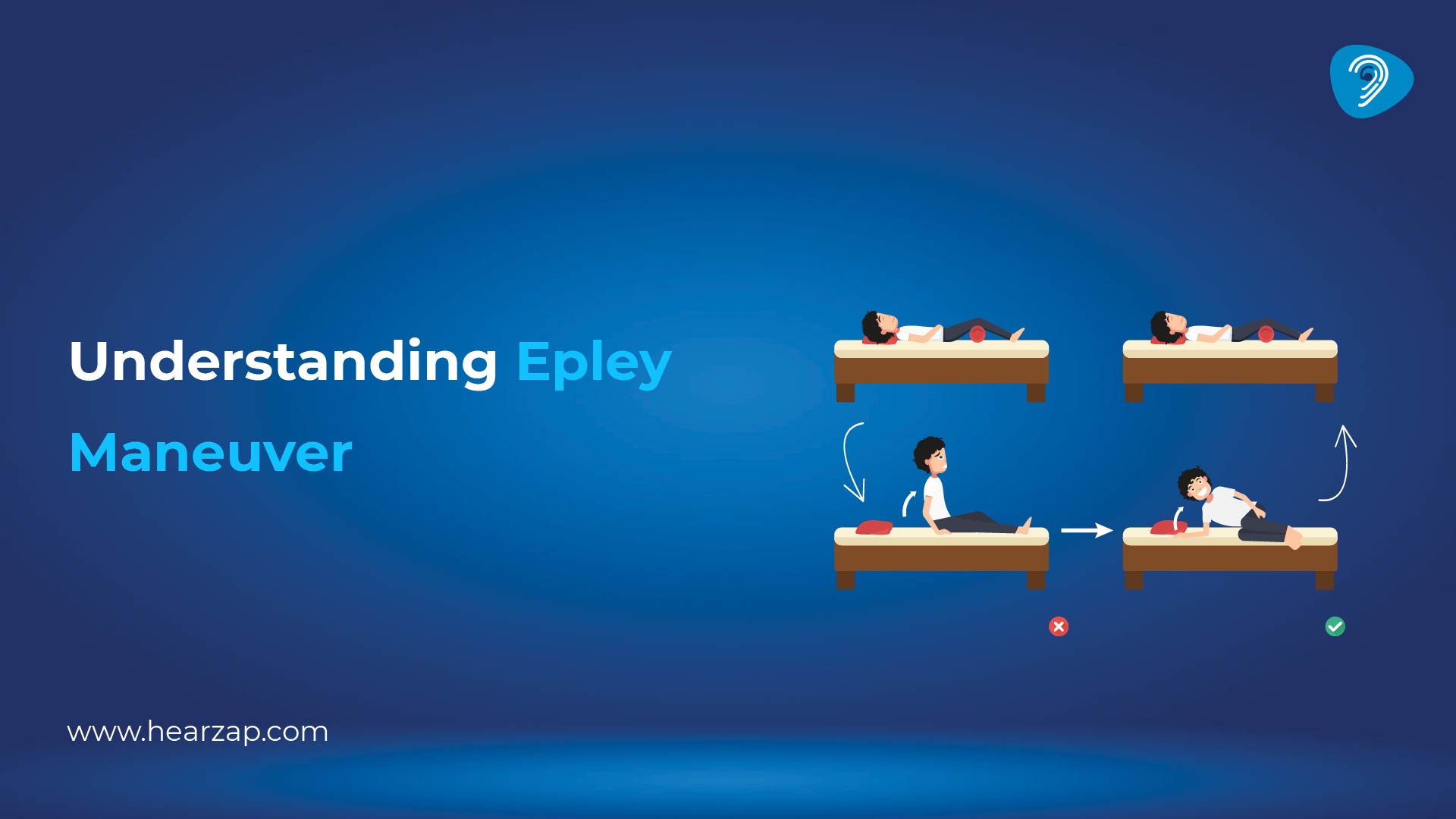
Epley Maneuver: A Simple Technique That Helps Vertigo Feel Less Scary
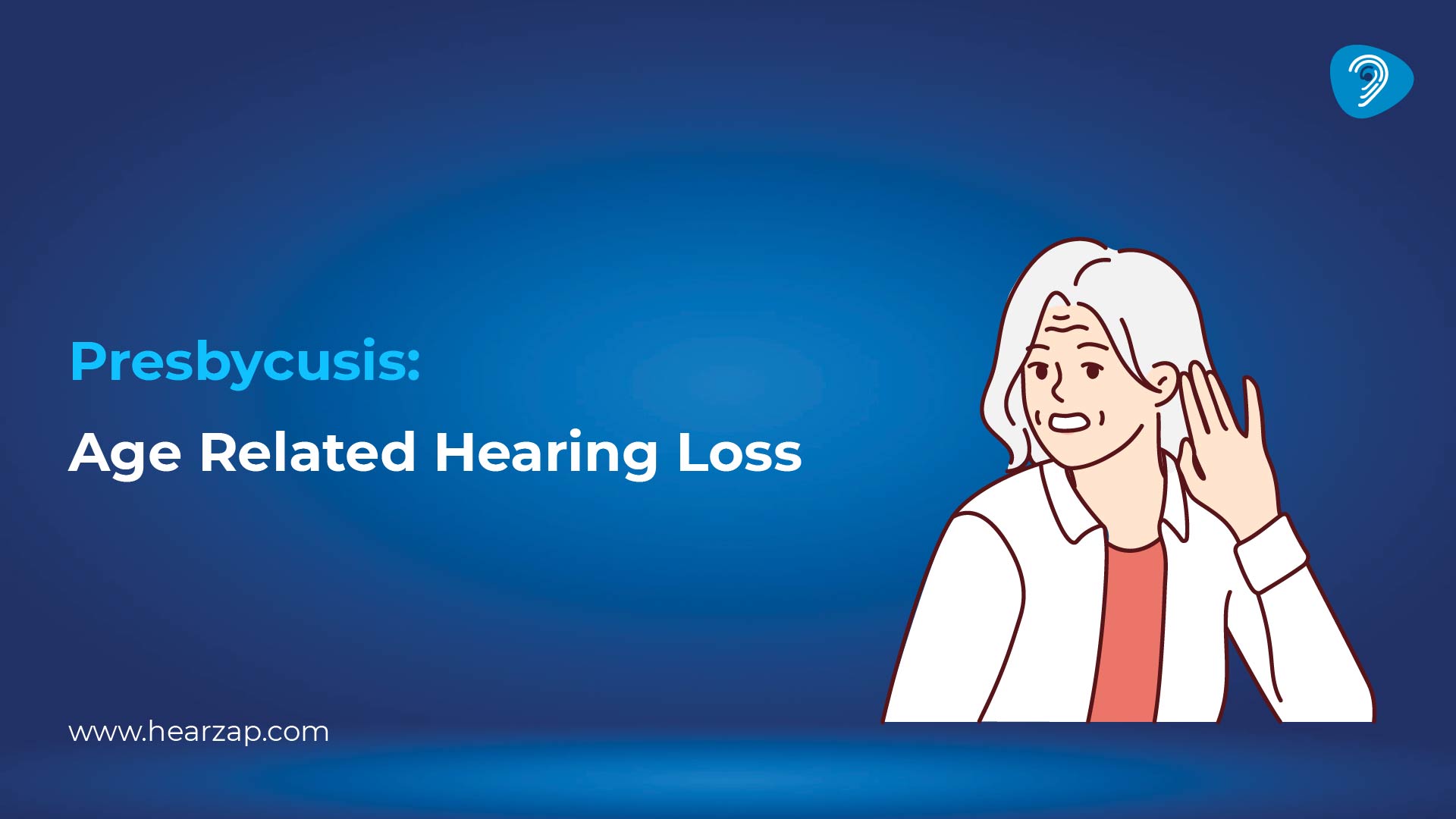
Presbycusis (Age-Related Hearing Loss)
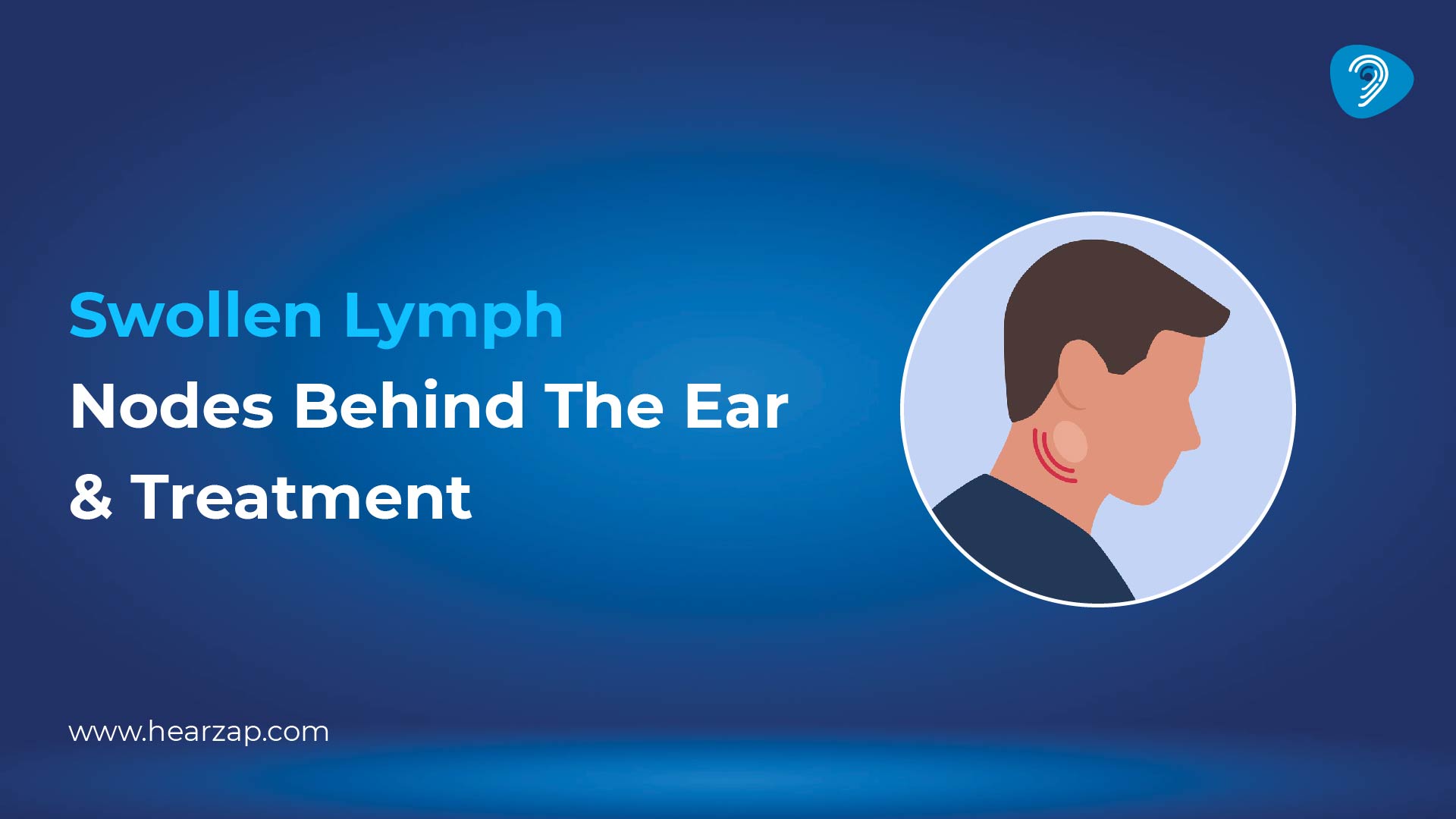
Swollen Lymph Nodes Behind the Ear: Causes, Symptoms, and Treatment
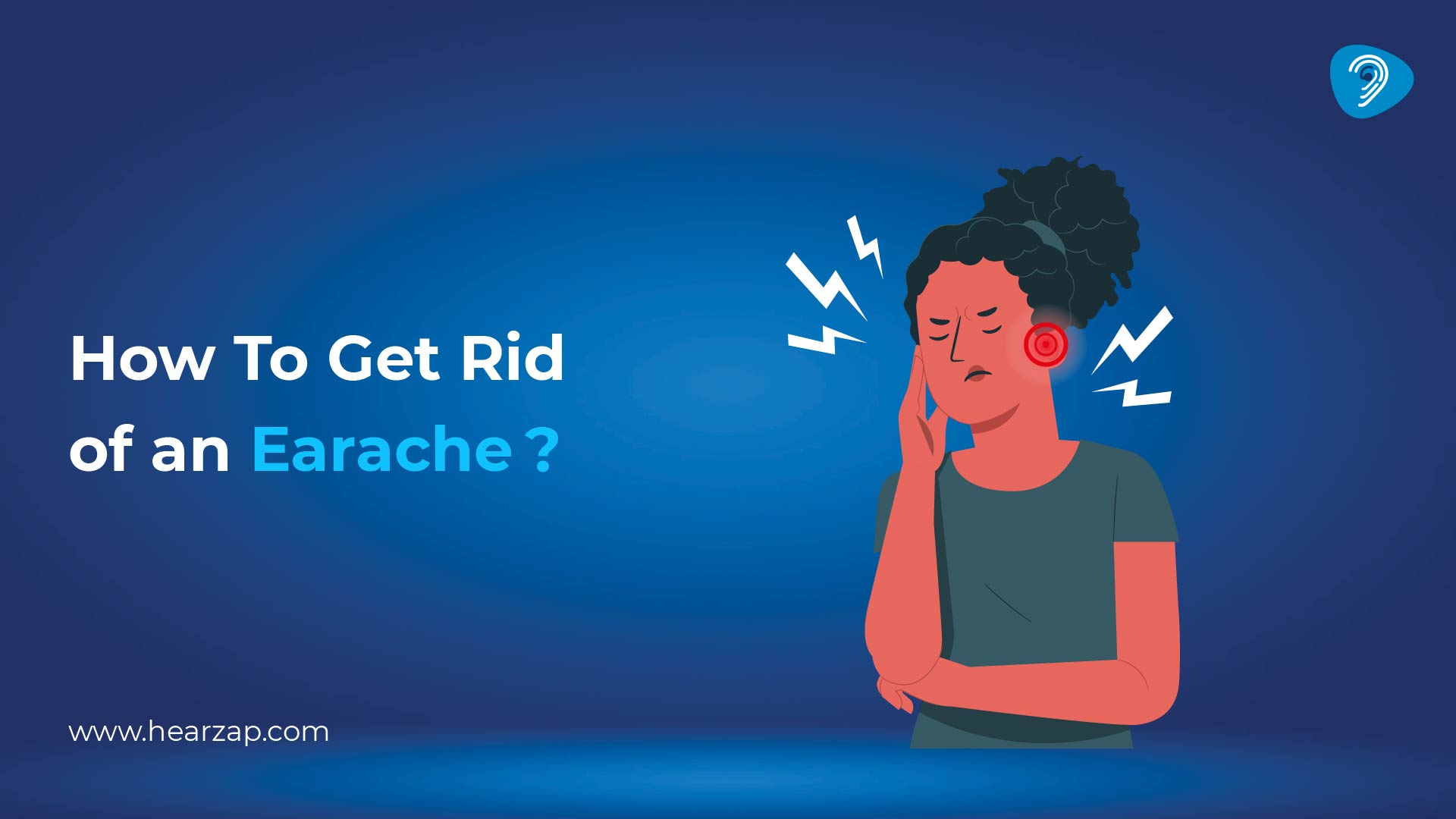
A Guide to How to Get Rid of an Earache
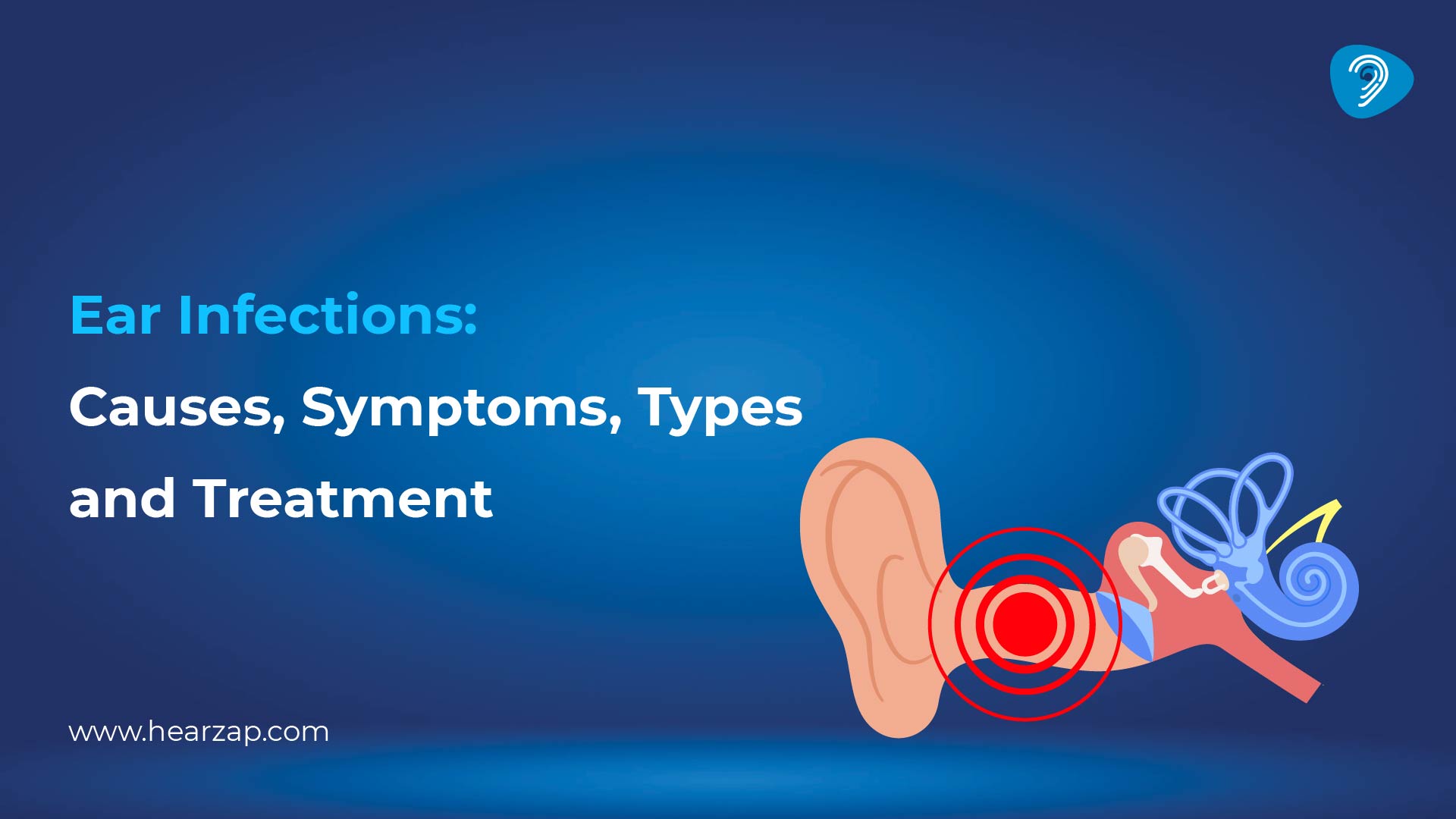
Ear Infections: Causes, Symptoms & Treatment
Contact us
We are here for all your hearing needs, from hearing tests to hearing aids. Fill out the form below, and we will give you a call soon.
Please enter a valid mobile number with 10 digits.
Recent Blogs
By None | Feb. 25, 2026
By None | Feb. 20, 2026
By None | Feb. 16, 2026
By None | Feb. 9, 2026
By None | Feb. 7, 2026









